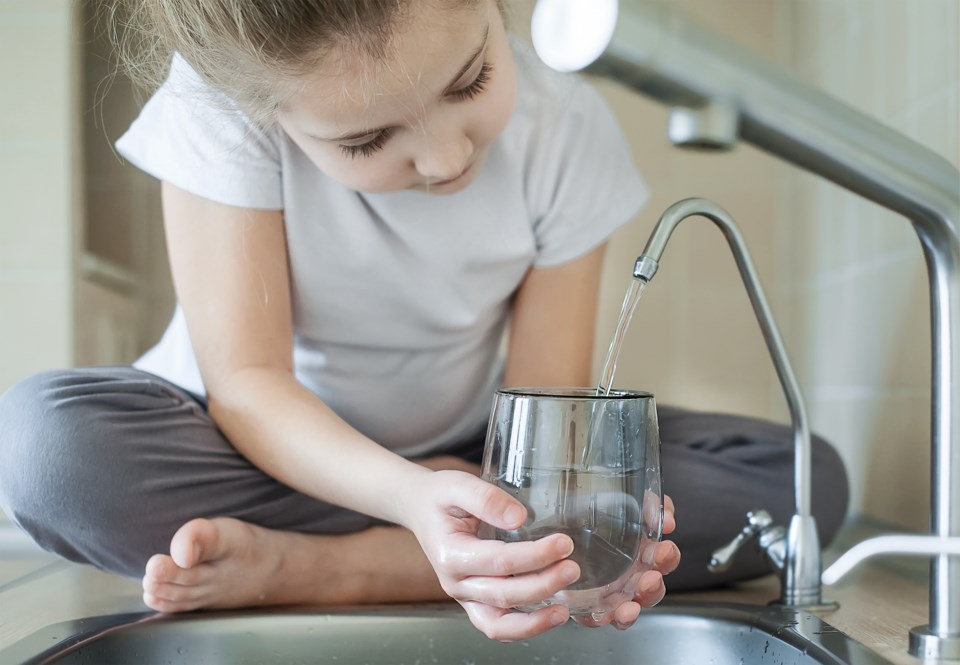The water from your faucets, shower, and tub will be cleaner and safer if you install a whole-house water filter. Whole-house water filters are often only necessary when using well water and are tailored to fix a specific issue with the water used for drinking, cooking, and cleaning. While some whole-house filtration systems focus on reducing common problems with well water, such as too much silt, iron, sulfur, or arsenic, others target disagreeable tastes and aromas stemming from excess chlorine. Anyhow, they go in at the point where the main water line enters the house. Whether you have access to city water or a private well, regardless of the water’s composition, you’ll want to install a whole-house water filter in your home.
How Does a Whole House Water Filter Work?
Before arriving at your sink, all water must travel long distances. The water comes from the sky and eventually makes its way to a body of water like a lake, river, or stream. These surface waters are used for municipal supplies, and water-seeped underground aquifers are used to fill private wells. Water can pick up natural and artificial toxins as it travels through the environment.
- Before it finally reaches your home’s tap, municipal water has already been through quite the ordeal. It originates in a lake, river, or ground and travels underground to a treatment facility. Water is susceptible to picking up dirt, particles, and other impurities along the route, which can elevate water hardness and lead to other issues.
- Even though municipal water is processed and treated before it is delivered to homes, not all potential hazards are eliminated. However, many water purification facilities need to be equipped to deal with toxins that have yet to be formally addressed by the agencies that set standards for the quality of municipal water supplies.
- In addition, deteriorating infrastructure and lead pipes can introduce new toxins into the water supply as it moves from treatment facilities to individual homes. A drinking water filtration solution, such as a reverse osmosis system, is the most excellent option for addressing some water issues. Some people may benefit from installing a whole-house filter.
- The water in a residence that uses well water is drawn up from an underground aquifer and distributed throughout the building via a network of pipes.
What are the benefits of installing a whole-house water filter?
One way to ensure that all of the water in your home is pure is to install a whole-house water filter. It’s also known as a Point of Entry (POE) system because it’s typically set up before the water reaches the storage tank. This guarantees that your home’s water faucets consistently deliver clean, filtered water. Your faucets, appliances, and plumbing fixtures (including the toilet) will receive filtered water.
- Water quality:
Water can be contaminated with various elements regardless of where it comes from. The quality of the water delivered to your home may vary, even if it comes from a municipal source. One surefire way to guarantee potable water at every tap in the house is to install a whole-house water filtration system. The value of health advantages of drinking this water cannot be overstated.
- Less chlorine and improved water flavor:
Water quality is often judged first and foremost by its taste and whether or not it has been chlorinated. Recent studies have revealed that washing with chlorinated water dries the skin, makes hair lifeless, and in high quantities, can be detrimental to overall health, despite chlorine’s long history as a water disinfectant.
- Economically viable:
It is more cost-effective to install a whole-house water filter than constantly replacing plastic water bottles. Although there is an initial installation cost and ongoing expense, the total water per liter used is far less than the cost of bottled water.
- Requiring less attention from you, the homeowner, in terms of appliance maintenance:
A whole-house water filter protects your washer, dryer, fridge, dishwasher, water heater, and other plumbing fixtures from harmful water contaminants. As a result, fewer repairs are needed, and the equipment lasts longer.
- Superior linens and dishware that maintain their brilliance and cleanliness:
Clothes will be brighter, and dishes will be film-free after installing a whole-house water filter.
- Non-harmful to the environment:
Unlike smaller filters or buying bottled water, installing a whole-house water filter is the most eco-friendly option. This is because used water is not released from a whole-house filter system. Following the filtration process, the water entering the system will be the same as before. Because fewer plastic water bottles need to be manufactured and shipped around, this practice also helps cut emissions.
- Simple and quick set-up:
Whole-house water filters are simple because they must be installed only once before the water storage tank. It may be seated quickly because it doesn’t require significant alterations to the existing plumbing.
- Continuous Availability of Potable Water in Good Condition:
After installing water purification equipment, you can access pure water whenever needed. Worrying about health risks or spending money on bottled, purified water is no need. In the course of their play, children frequently stop to drink from various water fountains. You can ensure your pet’s health by providing it with fresh water.
Conclusion:
You won’t have to drink the potentially contaminated sewage water if the sewer connection to your house bursts in a disaster. The only way to guarantee everyone in the house stays healthy until the sewage is fixed to install a whole-house water filter. With these advantages in mind, it’s clear that a portable and inexpensive home filter system is an excellent purchase.





